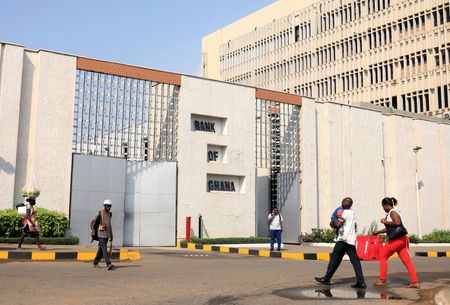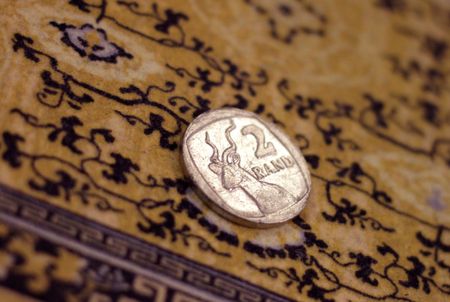By Lawrence White
LONDON (Reuters) – Stocks fell, Treasury yields rose and the dollar came under pressure on Wednesday, as investors sold U.S. assets over growing concerns about President Donald Trump’s efforts to ram through a tax-cutting bill.
Oil prices also rose more than 1% after CNN reported that Israel was preparing a strike on Iranian nuclear facilities, raising supply concerns out of the key Middle East producing region and bringing geopolitical worries back into focus. [O/R]
Investor sentiment has been fragile since Moody’s last week downgraded the United States’ credit rating, stoking concerns about the country’s $36 trillion debt pile, with Trump pushing for tax cuts that could worsen the debt load by $3 trillion to $5 trillion.
U.S. stock index futures dipped nearly 1% in European trading hours on Wednesday as Trump tried to muster more support from Republicans who object to parts of his bill, which would reduce health and food benefits for low-income Americans and cut green-energy programs among other measures.
There are also concerns about a lack of progress on U.S. trade talks with trading partners pressing Washington to ease or eliminate its tariffs.
Treasury yields have stayed elevated, with the yield on 30-year Treasury bonds hitting 5%, ahead of a key auction later on Wednesday of $16 billion of 20-year notes which will act as a measure of demand for longer-term U.S. debt.
European stocks also retreated from recent highs, with the pan-European STOXX 600 down 0.5%, led by falls in British sportswear retailer JD Sports and Swiss bank Julius Baer.
Investors, meanwhile, flocked to safe-haven currencies including the yen and Swiss franc.
“People are looking at the idea of moving capital out of the U.S. and it’s certainly not a mass exodus, but people are looking at the opportunities in some of these other markets again,” said Chris Weston, head of research at Pepperstone.
Investors sought those opportunities in Asia, with MSCI’s broadest index of the region outside Japan up 0.8% at a seven-month high.
In currencies, dollar selling accelerated in Asia, driving the yen, Swiss franc and the euro to their strongest levels in two weeks.
The pound touched a three-week high and last bought $1.3407. British inflation jumped to a higher-than-expected annual rate of 3.5% in April from 2.6% in March.
JAPANESE BOND JITTERS
Markets were also monitoring the Group of Seven finance ministers’ meetings currently underway in Canada for any hints that a weaker dollar could help advance trade negotiations.
Investors in the Japanese bond market remained jittery after a steep selloff in super-long bonds in the previous session.
Yields on longer-dated bonds hovered near record highs on Wednesday, with questions over how the country could fund new fiscal stimulus, with the central bank trying to normalise monetary policy.
Data on Wednesday showed Japanese shipments to the U.S. fell in April even as exports rose for the seventh straight month, highlighting the toll Trump’s tariffs could take on the fragile economic recovery in Japan.
Analysts said any progress on deals between the U.S. and its trade partners could fuel risk appetite, but there are concerns Trump’s policies could still damage the global economy.
On Tuesday, U.S. Federal Reserve officials said prices were rising on the back of higher U.S. import tariffs and counselled patience before making any interest rate decisions.
Gold prices rose on Wednesday as the dollar weakened and investors flocked to safe-haven assets. Spot gold was 0.7% at $3,311 per ounce, the highest in more than a week.[GOL/]
(Reporting by Lawrence White in London, Johann M Cherian and Ankur Banerjee in Singapore; Editing by Jamie Freed, Sonali Paul, Sharon Singleton and Ed Osmond)








